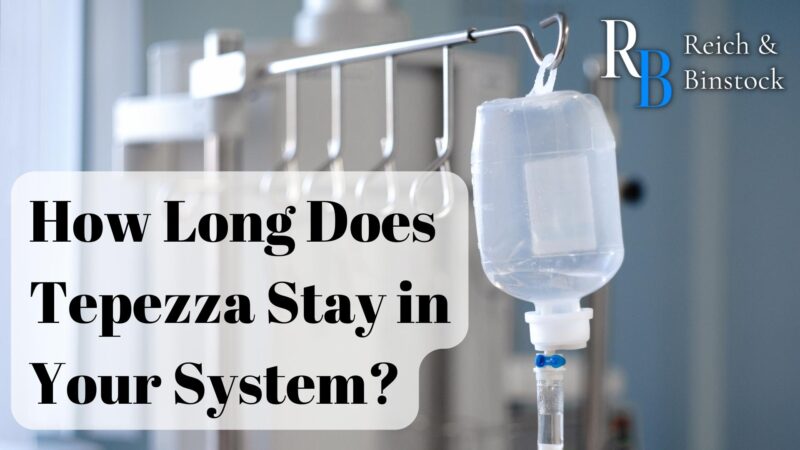XELJANZ LAWSUIT ATTORNEY

Xeljanz Lawsuit & Settlement Attorneys
What should you do when a mediation makes you worse instead of better? Even if the drug is prescribed by a doctor, when the side effects exceed the benefits, medicines can become dangerous and sometimes lethal. This leads people to file claims like those in the current Xeljanz lawsuit.
Pharmaceutical suppliers have a legal responsibility to properly disclose the risks and side effects of a drug before they bring it to market. However, sometimes those warnings are withheld in the name of profit.
Pfizer released Xeljanz in 2012, and in just the last two years, the FDA has warned of potential risks. But, the question still stands: why didn’t Pfizer warn its consumers sooner?
The Xeljanz lawsuit claims that the use of Xeljans, a drug used to treat rheumatoid arthritis, psoriatic arthritis, and ulcerative colitis, can cause cancer, major cardiac events, including heart attacks and strokes, and blood clot complications, including pulmonary embolisms and deep vein thrombosis.
At Reich and Binstock, we’re filing lawsuits on behalf of clients who took Xeljanz and have been diagnosed with cancer, a major cardiovascular event, or venous thromboembolism, such as DVTS or a pulmonary embolism.
We’ve been handling lawsuits against big drug companies for decades and fight tirelessly to help our clients get the compensation they deserve.
What is Xeljanz?
Xeljanz belongs to a class of drugs known as Janus Kinase inhibitors. Our bodies have proteins called cytokines that signal and regulate the immune system response. Whenever our body needs to fight an infection, it increases the production of cytokines. Excessive cytokine production is thought to play a role in chronic inflammatory conditions, like rheumatoid arthritis, psoriatic arthritis, and ulcerative colitis. Xeljanz stops the signaling that produces some of the cytokines, and this reduces inflammation.
Since 2012, the FDA has approved Xeljanz for several uses:
- 2012: Xeljanz for rheumatoid arthritis
- 2017: Xeljanz and Xeljanz XR for psoriatic arthritis
- 2018: Xeljanz for ulcerative colitis
- 2020: Xeljanz for polyarticular juvenile idiopathic arthritis
Xeljanz was primarily used to treat very severe cases of rheumatoid arthritis. But, after the drug also started being used to treat ulcerative colitis and psoriatic arthritis, Pfizer started aggressively marketing Xeljanz, specifically. It has quickly become one of the company’s blockbuster drugs because it works as intended, if you set aside the life-threatening risks.
Xeljanz is now one of the most heavily marketed and profitable drugs in history. Pfizer reported $2.4 billion in worldwide Xeljanz sales in 2020.
This is a drug that Pfizer desperately wants to keep in the market.
Recent Study Suggests Xeljanz Increases the Risk of Blood Clots and Death
After its 2012 approval, the FDA required Pfizer to undertake post marketing safety studies to further study Xeljanz risks.
In February 2019, a post-marketing safety study found a statistically significant, “clinically important” higher rate of pulmonary embolism for rheumatoid arthritis patients.
The study examined rheumatoid arthritis patients over the age of 50 who had at least one cardiovascular risk factor, such as high blood pressure. The study compared patients that took Xeljanz 10mg twice daily, Xeljanz 5mg twice daily, and a control group of TNF inhibitors, like Humira.
After the initial study indicated an increased clot risk in higher dosing patients, the high-dose users were transferred to lower doses. However, subsequent results showed that an increased death risk may occur at the lower doses, as well.
So, in February 2021, the FDA issued a new safety alert that warned of the results: an increased risk of serious heart-related events and cancer in patients who took Xeljanz or Xeljanz XR. As of September 2021, the FDA updated that the study results are now final.
Xeljanz and Blood Clots
In February 2019, the FDA warned that the Xeljanz safety trial showed increased risk of blood clots in the lungs and death. In July of the same year, the FDA announced that it approved new warnings about thrombosis and death only for patients who were treated with 10 mg twice a day.
Thrombosis occurs when a blood clot blocks an artery or vein. Arterial thrombosis, deep vein thrombosis, and pulmonary embolism have all been reported from Xeljanz patients.
- Deep vein thrombosis, or DVT, usually occurs in the legs.
- A blood clot that travels to the lungs is called a pulmonary embolism, or PE. Pulmonary embolisms typically start by a blood clot that begins in the arm or leg.
- Arterial thrombosis is a blood clot in an artery and can stop blood from reaching vital organs.
Blood clots, like those associated with Xeljanz use, can lead to a heart attack, organ damage, stroke, or even death.
Symptoms of a blood clot include, but aren’t limited to:
- Chest pain that worsens with breathing
- Shortness of breath
- Swelling in the arms or legs
- Red or discolored skin in the arms or legs
- Leg pain or tenderness
Xeljanz and Cancer
The FDA alerted the public in February 2021 that preliminary results also showed an increased risk of cancer for those who have taken Xeljanz.
In a press release, Pfizer reported that malignancies observed in Xeljanz studies include, but are not limited to:
- Breast cancer
- Lung cancer
- Lymphoma
- Melanoma
- Non-Hodgkin’s lymphoma
- Pancreatic cancer
- Prostate cancer
Xeljanz and Cardiovascular Problems
Also in February 2021, the FDA warned about serious heart-related issues that could result from Xeljanz use.
Pfizer reports a total of 135 patients in the study had a major adverse cardiovascular event. However, the full report hasn’t been released yet. The most frequently reported event was myocardial infarction, commonly known as a heart attack.
Other cardiac events possibly linked to Xeljanz use include:
- Acute coronary syndrome
- Atrial fibrillation
- Cardiac arrest
- Cardiovascular death
- Heart failure
- Ischemic stroke
Xeljanz Lawsuit Claims
Those who took Xeljanz or Xeljanz XR for rheumatoid arthritis, psoriatic arthritis or ulcerative colitis and suffered injury may be eligible for compensation through a Xeljanz lawsuit.
Xeljanz-related injuries include:
- Heart attack
- Ischemic stroke
- Deep vein thrombosis
- Pulmonary embolism
- Death due to one of the above
Past injury lawsuits have provided compensation for:
- Medical costs (past and future)
- Wrongful death
- Lost wages
- Pain and suffering
- Other
Houston Xeljanz Injury Lawyers
In order to take on a big pharmaceutical company, you really need a large legal team to support you. The team at Reich and Binstock has the resources, experience and skill to successfully challenge pharmaceutical professionals, like Pfizer, in court.
We are currently speaking with clients across the United States about Xeljanz blood clot, cancer and cardiovascular lawsuits. Patients who took Xeljanz and developed a malignancy, thrombosis or any other heart-related issues may qualify.
Contact us today to speak with a Xeljanz lawyer.
There is never a fee unless we recover on your behalf.
Additionally, clients are not obligated to pay expenses if a recovery is not made.



















